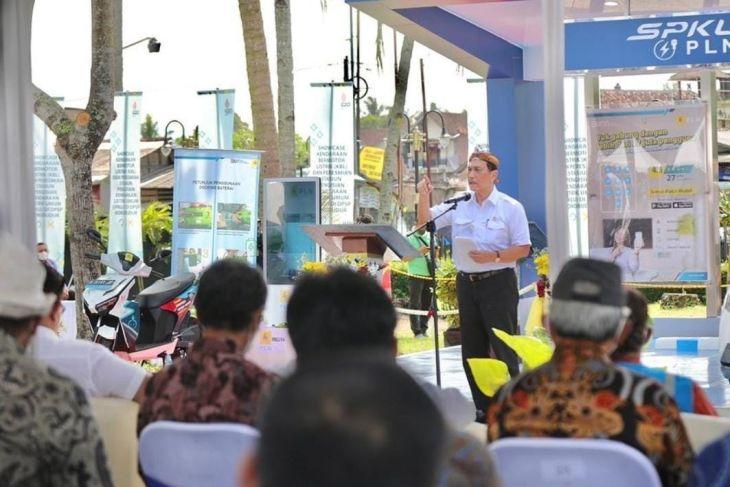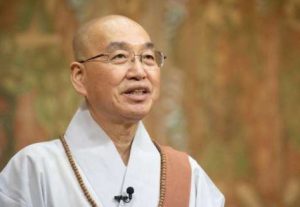
Indonesia’s government announced a new plan on 4 June to increase visitor fees and limit tourist numbers at the ancient Buddhist temple complex of Borobudur. The plan is aimed at helping to preserve the historic and cultural value of the UNESCO World Heritage Site, which has been promoted in recent years as a Buddhist tourism destination.
Currently, visitors to the popular tourist attraction are charged US$25 per person, but under the new fee structure, foreign tourists will pay US$100 per person and domestic tourists will pay 750,000 rupiah, or roughly US$50. The government will also limit the number of visitors entering the temple to 1,200 per day.
Additionally, foreigners will be required to be accompanied by a local guide while visiting the complex. Also planned is the introduction of electric shuttle buses to help tourists travel to the temple and adjoining areas.
Coordinating Minister for Maritime Affairs and Investment Luhut Binsar Pandjaitan noted: “We do this to create new jobs while growing a sense of belonging in this region, so that a sense of responsibility for the historical sites can continue to thrive in the future’s younger generation. We are taking these [steps] solely for the sake of preserving the rich history and culture of the archipelago.” (CNN)
After the announcement, many people expressed surprise on social media about the plan, which could make Borobudur the most expensive tourist site in the world.
Stuart McDonald, co-founder of Travelfish, a travel website about Southeast Asia, said: “The significance of this price hike has come out of the blue and seems somewhat ill considered.” (CNN)
McDonald suggested that foreign travelers presently make up only a “tiny minority” of Borobudur’s visitors. He added: “Borobudur is a key attraction in Indonesia and frequently cited as a highlight of Java . . . so one should be wary of overstating the importance of foreign tourists to the financial viability of Borobudur. The more important question might be [whether] foreign travelers will reduce their time in Yogyakarta, or remove the city entirely from their travel plans. I would cautiously say yes. The ripple effect could be significant.” (CNN)

From antaranews.com
A similar price hike at Cambodia’s Angkor Wat went into effect in 2017, rising from US$20 per person per day to US$37. Despite the increase, sales still rose in 2017, suggesting that the higher price did not dissuade tourists.
Nonetheless, people living near Borobudur are concerned. Tour guide Ade Wijasto expressed doubt that that Borobudur could repeat the success of Angkor Wat.
“The increase in ticket prices will only deter people from visiting Borobudur. Many of us are still recovering,” Wijasto said, refering to lost tourism during the pandemic. “We thought that the reopening of Borobudur would be good news, but [the government] has only made things worse.” (CNN)
Central Java Governor Ganjar Pranowo clarified that the new fee structure would apply only to people who climb to the temple area proper, stating: “[Most visitors] these days don’t climb up [to the temple] anyway, and merchants don’t have to worry about the price hike.” (Coconuts)
Visitors can still visit the general area of the temple complex, where local merchants offer souvenirs, and will only have to pay the current fee of around US$3.50.
Borobudur, near Yogyacarta on the island of Java, is one of the world’s largest Buddhist structures. It was built in the ninth century, during the Sailendra dynasty, and exhibits many conventions of Gupta-influenced Indian architecture. It thus serves as an example of the influence of Indian architecture along with unique Javanese style in the region. Borobudur is situated on a hilltop above a green plain. In 1991, it was designated a UNESCO World Heritage Site.
See more
Borobudur: World’s largest Buddhist temple to get more expensive (CNN)
Gov’t to hike Borobudur Temple entrance fee to IDR750K for locals, US$100 for foreigners (Coconuts)
Minister to limit daily visitors to Borobudur Temple to 1,200 (Antara)
Related news reports from BDG
Indonesian Buddhists to Celebrate Vesak at Borobudur Temple
Indonesia Aims to Promote Borobudur as a Global Buddhist Travel Destination
The Resistance: Indonesian Women Moving Against Religious Intolerance
Reviving the Bhikkhuni Sangha in Indonesia: an Interview with Ayya Santini













That is a big hike in price,
I am sure this will deter a lot of tourists,
The requirement of a guide to enter the temple is possibly a good idea, as long as they aren’t rushing you, would still want time to meditate/contemplate.
When is this to come in to affect ??
Was planning on going in early October, until I heard that we could not enter the temple.
May have to rethink !!?